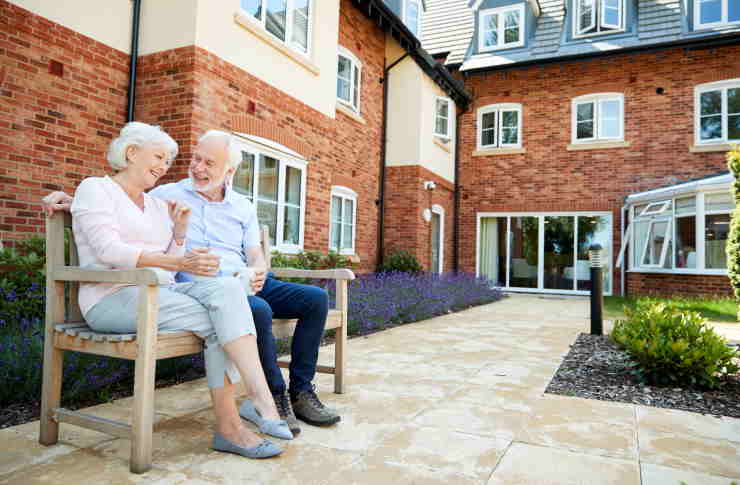Senior Apartments: Comfortable Living Options for the Golden Years
As we age, our housing needs often change. Senior apartments offer a tailored living solution for older adults seeking comfort, safety, and community. These specialized residences cater to the unique requirements of seniors, providing a blend of independence and support. This article explores the world of senior apartments, their benefits, and considerations for those contemplating this housing option.

These apartments are ideal for active seniors who can live independently but desire a more manageable living space. They’re also suitable for those who want to downsize from a larger home or seek a more social environment with like-minded individuals. Senior apartments can be an excellent choice for retirees looking to simplify their lifestyle while maintaining their independence.
What amenities do senior apartments typically offer?
Senior apartments are designed with the comfort and convenience of older adults in mind. Many communities offer a range of amenities to enhance residents’ quality of life. Common features include:
-
Accessibility features: Wide doorways, grab bars in bathrooms, and emergency call systems
-
Social spaces: Community rooms, fitness centers, and outdoor areas for gatherings
-
Maintenance services: Lawn care, snow removal, and general repairs
-
Transportation services: Scheduled trips to local shopping centers and medical facilities
-
Recreational activities: Group outings, hobby clubs, and fitness classes
These amenities aim to promote an active and engaging lifestyle while addressing the specific needs of senior residents. The exact offerings may vary between communities, so it’s essential to research and compare options when considering senior apartments.
How do senior apartments differ from other types of senior housing?
Senior apartments are distinct from other forms of senior housing in several ways. Unlike assisted living facilities or nursing homes, senior apartments are designed for independent living. Residents manage their own daily activities without the need for extensive medical care or assistance with personal tasks.
Here’s how senior apartments compare to other senior living options:
-
Independent Living: Senior apartments fall under this category, offering the most autonomy.
-
Assisted Living: Provides more support with daily activities and some medical care.
-
Nursing Homes: Offer round-the-clock medical care and assistance with all daily tasks.
-
Continuing Care Retirement Communities (CCRCs): Combine various levels of care in one location.
Senior apartments focus on providing a comfortable, low-maintenance lifestyle for active older adults who don’t require significant assistance with daily living. This makes them an attractive option for those transitioning from traditional homes to more manageable living arrangements.
What are the costs associated with senior apartments?
Understanding the financial aspects of senior apartments is crucial for those considering this housing option. Costs can vary widely depending on location, amenities, and services provided. Here’s a general breakdown of potential expenses:
-
Rent: Monthly fees for the apartment unit
-
Utilities: Some may be included in rent, others might be separate
-
Community fees: Charges for shared amenities and services
-
Additional services: Optional services like housekeeping or meal plans
To provide a clearer picture, here’s a comparison of hypothetical senior apartment communities:
| Community Name | Location Type | Monthly Rent Range | Included Amenities | Additional Costs |
|---|---|---|---|---|
| Serene Seniors | Urban | $1,500 - $2,500 | Fitness center, transportation | Utilities, meals |
| Countryside Retreat | Suburban | $1,200 - $2,000 | All utilities, weekly housekeeping | Optional meal plan |
| Lakeside Living | Rural | $1,000 - $1,800 | Utilities, basic cable | Transportation, activities |
Prices, rates, or cost estimates mentioned in this article are based on the latest available information but may change over time. Independent research is advised before making financial decisions.
It’s important to note that while senior apartments may seem costly, they often include services and amenities that can offset expenses you might incur in a traditional home. When budgeting, consider the potential savings on home maintenance, property taxes, and other homeownership costs.
How can seniors find affordable housing options?
For many seniors, finding affordable housing is a top priority. Fortunately, there are several avenues to explore when searching for budget-friendly senior apartments:
-
Government-subsidized housing: Programs like Section 202 Supportive Housing for the Elderly provide rent assistance for low-income seniors.
-
Income-based apartments: Some communities offer reduced rates based on the resident’s income level.
-
Non-profit organizations: Certain charities and religious groups operate affordable senior housing options.
-
Tax credit properties: Developments that use Low-Income Housing Tax Credits may offer reduced rents for qualifying seniors.
When searching for affordable options, it’s advisable to contact local senior services agencies or housing authorities. These organizations can provide information on available programs and waiting lists for subsidized housing in your area.
What should seniors consider when choosing an apartment?
Selecting the right senior apartment involves careful consideration of various factors. Here are key points to keep in mind during the decision-making process:
-
Location: Proximity to family, healthcare facilities, and preferred amenities
-
Community atmosphere: Social activities, resident demographics, and overall vibe
-
Safety features: Security systems, emergency response protocols, and accessibility
-
Contract terms: Lease agreements, move-in/move-out policies, and any age restrictions
-
Future needs: Potential for changing health or mobility requirements
It’s recommended to visit multiple communities, speak with current residents, and carefully review all agreements before making a decision. Taking the time to find the right fit can ensure a comfortable and enjoyable living experience in your new senior apartment.
In conclusion, senior apartments offer a valuable housing option for older adults seeking a balance between independence and community living. By understanding the features, costs, and considerations associated with these specialized residences, seniors can make informed decisions about their housing needs as they enter their golden years.






